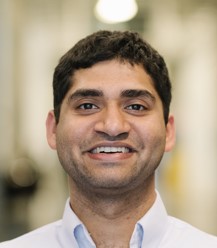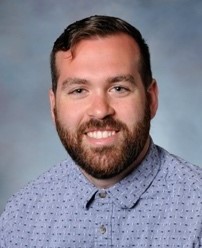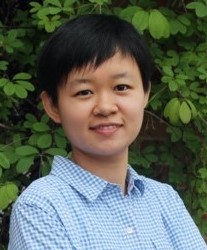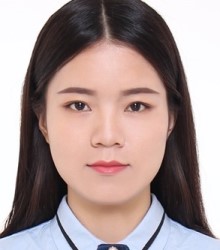Media Contact: Teri Chouinard, SPE Auto. Div. Comm. Chair, 248.701.8003, teri@intuitgroup.com.
TROY (DETROIT) MICH.- The organizing committee for the SPE Automotive Composites Conference & Exhibition (ACCE) today announced the winners of the group’s annual SPE ACCE scholarships and the Dr. Jackie Rehkopf scholarships from an endowed fund that has been set up to honor the long-time SPE ACCE committee member, SPE Automotive Division board member, and automotive composites researcher. SPE ACCE and Rehkopf scholarship winners will be honored at the SPE ACCE Virtual Event, Sept. 9 - 11, 2020. Both scholarships are administered as part of the SPE Foundation (Danbury, Conn., U.S.A., www.4spe.org).
The ACCE Scholarships (a total of $6,000 USD) are sponsored by the SPE Automotive and SPE Composites Divisions. Three scholarships ($2,000 USD each) are awarded to students pursuing advanced studies in a composites-related field. The three winners of the SPE ACCE scholarships are Sai Aditya Pradeep, a PhD candidate at Clemson University (Clemson, South Carolina, USA (http://www.clemson.edu). Alessandro Perego, a PhD candidate at University of Akron (Akron, Ohio, USA (https://www.uakron.edu) and Nathaniel Blackman, a PhD candidate at Baylor University (Waco, Texas, USA (https://www.baylor.edu).
The Dr. Jackie Rehkopf Scholarships are sponsored by the SPE Automotive Division, the SPE Composites Division and the generous donations of friends and family. Two winners selected this year for the Rehkopf Scholarship ($2,500 USD each) are Jiaqi Yan, a PhD candidate at North Carolina State University (Raleigh, North Carolina, USA (https://www.ncsu.edu) and Wencai Li, a PhD candidate at Louisiana State University (Baton Rouge, Louisiana USA (https://www.lsu.edu).
 Sai Aditya Pradeep, PhD Candidate, Materials and Manufacturing, Automotive Engineering Department,Clemson University, 2020 ACCE Scholar
Sai Aditya Pradeep, PhD Candidate, Materials and Manufacturing, Automotive Engineering Department,Clemson University, 2020 ACCE Scholar
Sai Aditya’s PhD research focuses on the scalable production of thermoplastic nano-celular foams via supercritical fluid assisted (SCF) injection molding, geared for automotive applications. Nano-cellular thermoplastic foams offer tremendous improvements over their conventional microcellular and microcellular counterparts in terms of their lightweight potential, mechanical and thermal insulation properties, and cost savings for the automotive sector. Although lab-scale techniques like Solgel have been used in the manufacturing of nano-foams, the industry continues to face challenges in manufacturing nano-cellular foams via a scalable yet sustainable process that can match the short cycle times needed in the automotive industry. Therefore, Aditya’s research is focused on studying the process of controlling cell nucleation in thermoplastic foams using innovative tooling strategies and crystal nucleating agents in order to manufacture a reproducible nano-cellular structure via injection molding.
Aditya’s work in the area of thermoset foams has culminated in publishing one journal article, three conference papers (two in SPE conferences). Additionally, his work in the area of thermoset foams has led to the publishing of three journal papers and two conference papers. He has been an active participant in SPE conferences and the work he’s been involved with has received four awards including a best poster award for his PhD work at the SPE ACCE 2019 conference.
Aditya is currently engaged in projects with the Department of Energy (DOE) and Honda Research & Development Americas (HRA) focusing on the manufacturing of an Ultra-lightweight Carbon Fiber Reinforced Thermoplastic Composites Door Assembly at the Clemson Composites Center. Sai has interned at Apple, Inc. and is keen on working in Polymer R & D in the consumer electronics or automotive sectors.
 Alessandro Perego, PhD Candidate, Polymer Engineering, University of Akron, 2020 ACCE Scholar
Alessandro Perego, PhD Candidate, Polymer Engineering, University of Akron, 2020 ACCE Scholar
Alessandro Perego’s research consists in using molecular dynamics (MD) simulations to study the long-standing problem of rubber waste management. The majority of the rubber in the world is used by the automotive industry, where it is processed by cross-linking natural and synthetic rubbers with the final addition of a small fraction of additives such as carbon black and silica particles. This composition makes rubber wastes among the most challenging materials to recycle as they will not dissolve or melt. Understanding and modeling these particular polymer blends not only will provide valuable insights on how to overcome the challenges of recycling and safely disposing of industrial and postconsumer rubber wastes, but it will also help to improve the mechanical properties of the rubber compounds, which will result in a longer life cycle of rubber products. Besides, the existence of additives in rubber leads to creation of interphase between the matrix and filler particles that plays a vital role in the overall enhancement of the mechanical properties of the blend. The interfacial interactions can provide a detailed understanding of the mechanism in strengthening the interphase between filler and rubber and guide experiments to design these materials. The objectives of his work are: (1) Provide a detailed description of the effect of interaction between elastomers and nanoparticle surface on the mechanical properties of the composite, and (2) Predict morphology of the particles in the final rubber compound. The mechanisms of enhancement of the long-time mechanical properties (low-frequency modulus and tensile modulus) and rolling resistance, which is related to the loss tangent of viscoelastic moduli can also be determined. To fully capture the interactions between rubbers and nanoparticles, a customized coarse-grained model based on the all-atom simulations will be built. This model will consider the effects of the particle surface modification and aggregation of the particles on the microstructure and mechanical properties of the final rubber compound. According to the EPA only 17.8 percent of the 8.5 million tons of rubber and leather waste streams get successfully recycled. The data he will obtain from his simulations will provide vital insights on the complex dynamics in rubber blends with fillers and help deliver a more complete picture on how to safely dispose and reuse industrial and postconsumer rubber waste streams.
 Nathaniel Blackman, PhD Candidate, Mechanical Engineering, Baylor University, 2020 ACCE Scholar
Nathaniel Blackman, PhD Candidate, Mechanical Engineering, Baylor University, 2020 ACCE Scholar
Nathaniel Blackman’s research is focused on carbon fiber. Carbon fiber composites are an increasingly popular material in a wide variety of industries. Today, carbon fiber composites are being used in airplanes, running shoes, athletic gear, race cars and some high-end consumer vehicles. These composites have a desirable strength-to-weight ratio, but these laminates are highly susceptible to manufacturing defects and in-service damage which can lead to a higher likelihood of catastrophic failure. The proposed research project will advance non-destructive testing of carbon-fiber composites using ultrasound, by creating algorithms and processes that automate the detection of foreign debris and low-impact damage in carbon-fiber laminates. If successful, this project will dramatically reduce the cost of implementing non-destructive testing techniques in both the manufacturing and service environments by eliminating the need for an advanced technical expert to interpret testing results. Results gained by the implementation of such testing during the manufacturing process can be used to further improve manufacturing process techniques of these advanced materials, and over time may help to make carbon fiber composites a viable design choice in more mass-market vehicles.
 Jiaqi Yan, PhD Candidate, Chemical and Biomolecular Engineering, North Carolina State University, 2020 Dr. Jackie Rehkopf Scholar
Jiaqi Yan, PhD Candidate, Chemical and Biomolecular Engineering, North Carolina State University, 2020 Dr. Jackie Rehkopf Scholar
Jiaqi Yan’s fundamental and applied research lies in investigating polymer nanostructures, nanocomposites, and networks by various techniques. Yan works on chemistry-structure-property relationships of styrenic block copolymers, with further modifications for different applications towards automotive, membranes, biocompatible materials and so forth. Yan received a Bachelor of Science degree in Chemical Engineering (with honors) from East China University of Science and Technology in 2016 and was later accepted as a PhD student in Chemical and Biomolecular Engineering at North Carolina State University. Subsequently, she joined the Macromolecular Materials and Morphology group in 2017 (under the supervision of Prof. Richard J. Spontak).
 Wencai Li, PhD Candidate, Mechanical & Industrial Engineering, Louisiana State University, 2020 Dr. Jackie Rehkopf Scholar
Wencai Li, PhD Candidate, Mechanical & Industrial Engineering, Louisiana State University, 2020 Dr. Jackie Rehkopf Scholar
Wencai Li’s PhD project is to create novel thermoplastic films and demonstrate their three-fold multifunctional purpose: 1) Energy direction during ultrasonic welding (USW) of thermoplastic composites; 2) Stress or strain – sensing under load for structural health monitoring (SHM); and 3) Self-heating to allow disassembly and repair. USW is chosen to join thermoplastic composites due to its fast welding speed (a few seconds), low energy consumption, concentrated heat generation and absence of foreign material at the welding interface. This welding technology is typically employed to fusion bond unreinforced or reinforced thermoplastic using an energy director, such as a flat thermoplastic film, with high frequency and low amplitude vibrations to generate heat between adherends, while applying pressure through a sonotrode. In this project, she will investigate the use of multi-walled carbon nanotube/polypropylene (MWCNT/PP) nanocomposite films to enable ultrasonic welding and damage detection of glass fiber/polypropylene (GF/PP) composite joints. Pure PP, 15 wt%, 20 wt%, and 25 wt% MWCNT/P films were chosen to weld GF/PP adherends. The effect of MWCNT content on the ultrasonic welding process was evaluated by comparing weld quality through lap shear strength (LSS) tests and fractography analysis. Welded joints under cyclic bending and tension until failure were then studied for damage detection using real-time electrical resistance measurements. Further research is needed to improve joints’ strength, as well as films’ sensitivity for strain monitoring and structural health monitoring. Repairability at the interface through self-heating or disassembly with resistance heating will also be considered to extend the life of thermoplastic composites during use.
####
About ACCE:
This year’s ACCE is a virtual event due to CDC recommendations for social distancing due to COVID-19.
The three-day virtual ACCE will feature two keynotes, two panel discussions, 40 technical presentations, and 23 sponsors presenting advances in materials, processes, and equipment for both thermoset and thermoplastic composites in a wide variety of transportation applications. Daily virtual networking opportunities will enhance the value of the event that expects to draw over 400 attendees worldwide. The Automotive and Composites Divisions of the Society of Plastics Engineers (SPE®) jointly produce the ACCE to educate the industry about the benefits of composites in automotive, light and heavy-duty truck, off-highway vehicles, and other ground transportation applications. Held annually in suburban Detroit, the ACCE in-person events typically draw over 800 speakers, exhibitors, sponsors and attendees and provide an environment dedicated solely to discussion, education and networking about advances in transportation composites. Its global appeal is evident in the diversity of exhibitors, speakers, and attendees who come to the conference from Europe, the Middle East, Africa, and Asia/Pacific as well as North America. About one-third of attendees work for automotive and light truck, agriculture, truck & bus or aviation OEMs and another 25% represent tier suppliers. Attendees also work for composite materials processing equipment, additives, or reinforcement suppliers; trade associations, consultancies, university and government labs; media; and investment banks. Since 2001, the event has been produced by the SPE Automotive & Composites Divisions. The mission of SPE is to promote scientific and engineering knowledge relating to plastics worldwide and to educate industry, academia, and the public about these advances. SPE’s Automotive Division is active in educating, promoting, recognizing, and communicating technical accomplishments in all phases of plastics and plastic-based composite developments in the global transportation industry. SPE’s Composites Division does the same with a focus on plastic-based composites in multiple industries. Topic areas include applications, materials, processing, equipment, tooling, design, and development. For more information see www.speautomotive.com and www.specomposites.org. For more information on the Society of Plastics Engineers, see www.4spe.org.
 Sai Aditya Pradeep, PhD Candidate, Materials and Manufacturing, Automotive Engineering Department,Clemson University, 2020 ACCE Scholar
Sai Aditya Pradeep, PhD Candidate, Materials and Manufacturing, Automotive Engineering Department,Clemson University, 2020 ACCE Scholar Alessandro Perego, PhD Candidate, Polymer Engineering, University of Akron, 2020 ACCE Scholar
Alessandro Perego, PhD Candidate, Polymer Engineering, University of Akron, 2020 ACCE Scholar Nathaniel Blackman, PhD Candidate, Mechanical Engineering, Baylor University, 2020 ACCE Scholar
Nathaniel Blackman, PhD Candidate, Mechanical Engineering, Baylor University, 2020 ACCE Scholar Jiaqi Yan, PhD Candidate, Chemical and Biomolecular Engineering, North Carolina State University, 2020 Dr. Jackie Rehkopf Scholar
Jiaqi Yan, PhD Candidate, Chemical and Biomolecular Engineering, North Carolina State University, 2020 Dr. Jackie Rehkopf Scholar Wencai Li, PhD Candidate, Mechanical & Industrial Engineering, Louisiana State University, 2020 Dr. Jackie Rehkopf Scholar
Wencai Li, PhD Candidate, Mechanical & Industrial Engineering, Louisiana State University, 2020 Dr. Jackie Rehkopf Scholar






.jpg)
.jpg)
.jpg)

.jpg)
